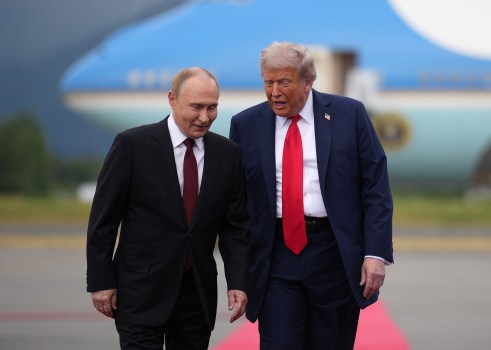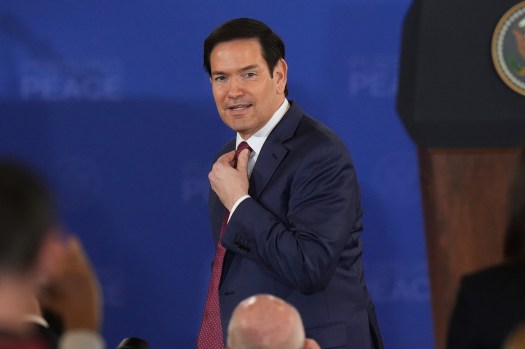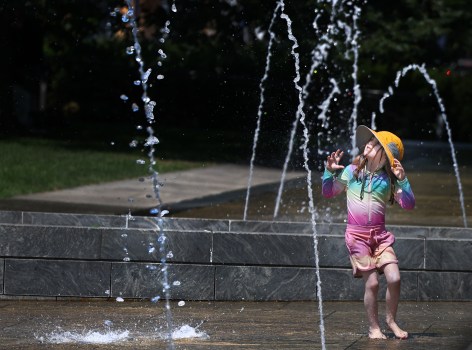In an attempt to prepare for possible federal funding cuts that might mean disaster for Massachusetts, Governor Maura Healey said her budget office is prepared to remove millions in legislative earmarks for local projects and will seek the unusual power to cut spending across all state government.
On Friday, the first-term Democrat also revealed intentions to stop compensation increases for some of her employees, discontinue health insurance coverage of a weight-loss medication for public employees, and extend a hiring moratorium in the executive branch through fiscal year 2026.
With President Donald Trump poised to sign a big tax break and expenditure reduction measure on Friday, as well as his repeated decisions to eliminate large portions of government funding, Healey is positioning herself to weather a potential financial calamity, according to her aides.
On the same day that she signed and vetoed almost $130 million of a roughly $61 billion state budget that outlines expenditures for the upcoming year, the governor, who is up for reelection next year, made the announcements.
Additionally, we are signing this budget during a highly dysfunctional period in Washington. According to a statement, the president is about to sign a law that will deprive hundreds of thousands of Massachusetts citizens of their health insurance, raise the cost of groceries and electricity, and cause job losses.
Hours before Trump was scheduled to sign a roughly 900-page package that is crammed with tax advantages, spending cuts, and funding for Republican priorities like immigration deportation and national security, Healey laid out her plans.
According to Matthew Gorzkowicz, secretary of administration and finance, the Healey administration intends to postpone transferring funds to municipalities until later this fall, which is several months longer than typical, rather than immediately reducing local earmarks to balance the state budget.
He claimed that the postponement would allow state budget writers to evaluate the effects of federal funding. However, he clarified that Healey would consider reducing local earmarks in the event that economists forecast a decline in state revenue or if Massachusetts encounters any other financial challenges.
He said he had a statutory obligation to certify that there is enough money on hand to pay the state’s debts by October 15; however, he did not give a specific timeframe for when a decision would be taken regarding the release of funds for municipal earmarks.
State officials, who oversee the requests through the annual budget process and frequently claim credit for the financial successes when cities and towns in their legislative districts eventually use the funds, would undoubtedly oppose any changes to local earmarks.
In addition to signing off on the fiscal year 2026 budget, Healey submitted a $100 million supplementary spending measure that would grant her office the authority to make emergency budget cutbacks, known as 9C cuts.
According to Massachusetts law, a governor may only reduce executive branch spending in times of emergency if they believe there is insufficient funds to cover the state’s expenses. In 2024, Healey cut $375 million after the state failed to meet revenue targets for six consecutive months.
Gorzkowicz, however, stated that Healey’s plan, which was submitted on Friday, aims to go farther.
Only in fiscal year 2026, if revenues fall $400 million short of early estimates or if changes to federal policy leave a $400 million hole in the budget, would the law permit the Healey administration to cut expenditure across the board.
This implies that Healey and Gorzkowicz could cut expenditure on a wide range of programs and agencies, as well as other constitutional offices including the State Auditor’s Office, the Attorney General’s Office, and the Legislature, if the proposal is enacted as drafted.
Gorzkowicz said the Healey administration intends to forego a 2% pay boost for about 3,600 non-union managers in the executive branch that was supposed to go into effect in January as part of another cost-cutting measure. According to him, the change will save roughly $17 million.
The hiring freeze for the executive branch that Healey implemented in May will also be extended for the upcoming year by budget writers.
According to Gorzkowicz, the extended hold on recruiting new staff is crucial to ensuring the Healey administration can operate with reduced budgetary appropriations and maintain a responsible profit margin.
Additionally, Healey chose to veto $130 million of the roughly $61 billion fiscal year 2026 budget that she approved on Friday, which included $26 million to remove GLP-1 weight-loss medication coverage from public employee health insurance plans.
Gorzkowicz said the move follows a significant budget deficit at the Group Insurance Commission, which oversees health insurance for public employees, and is in line with decisions made by commercial insurance providers in the past year.
“The administration said in a statement that Governor Healey is ordering GIC to approve a mid-year health insurance plan change for state employees to eliminate coverage in all cases except when medically necessary, such as for patients with diabetes.”












